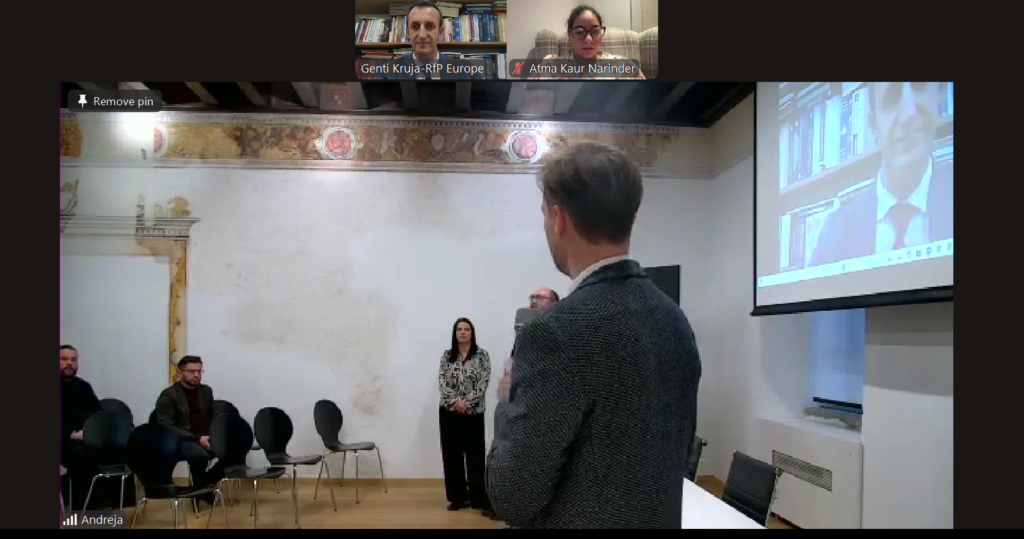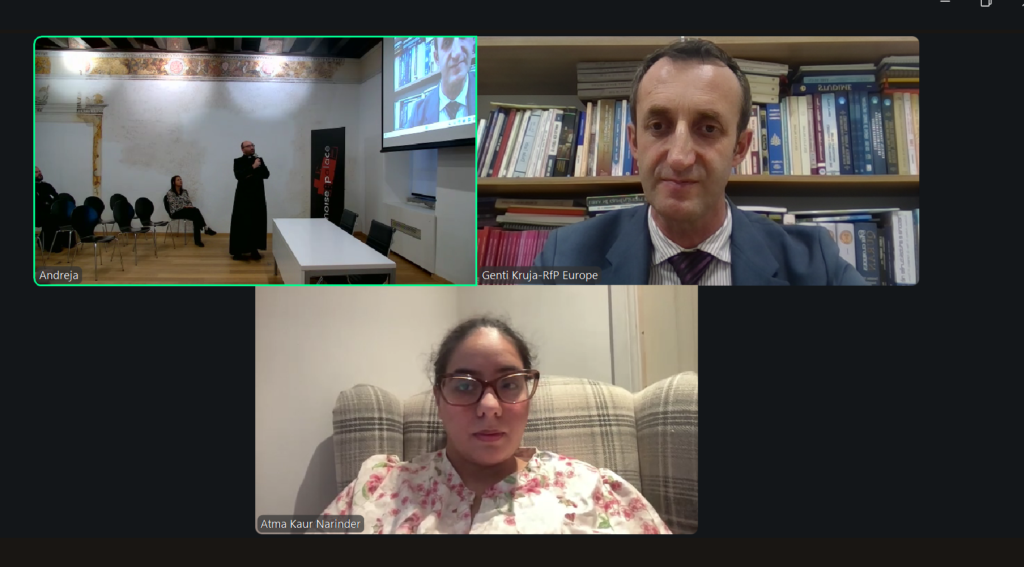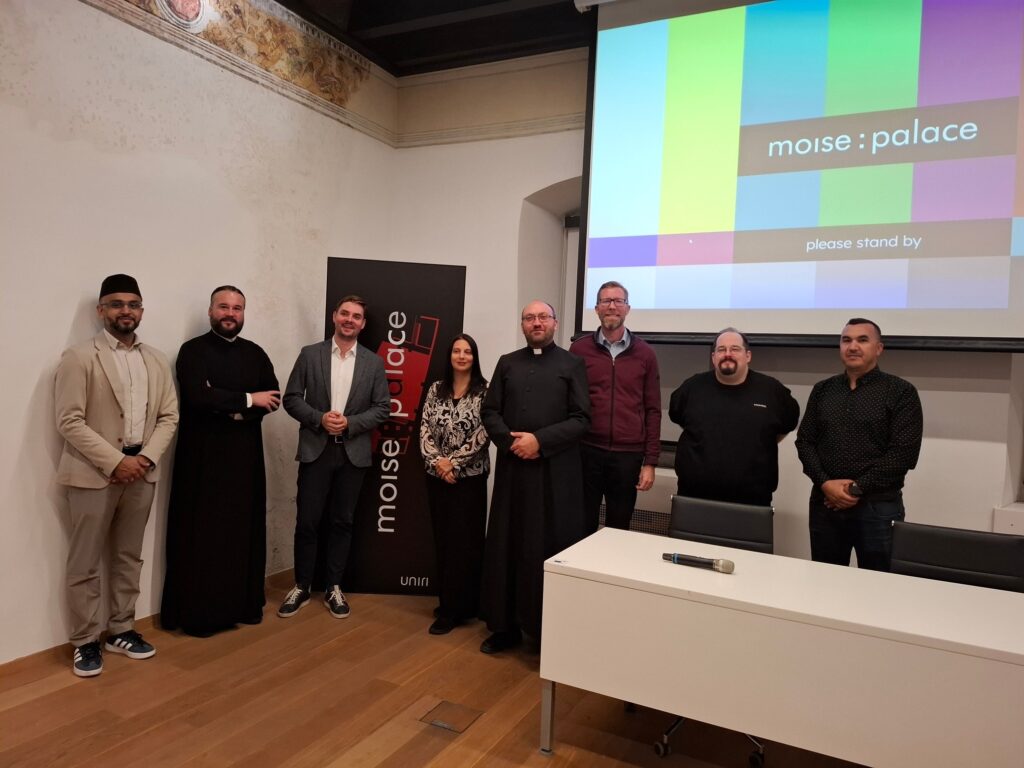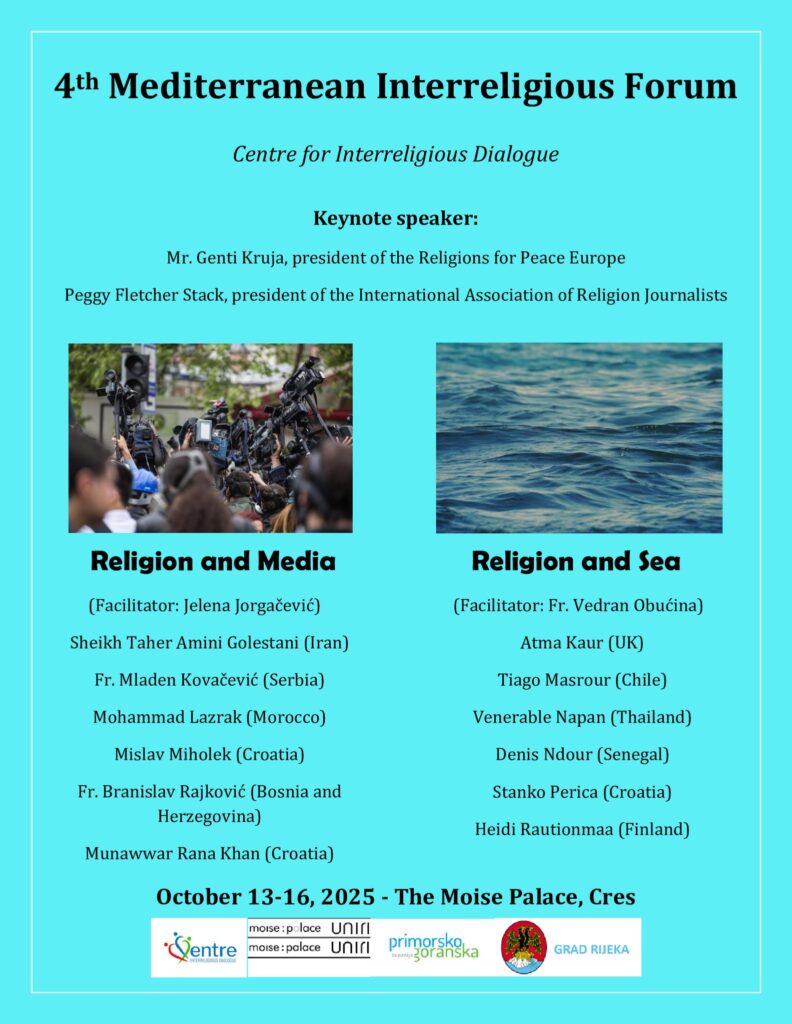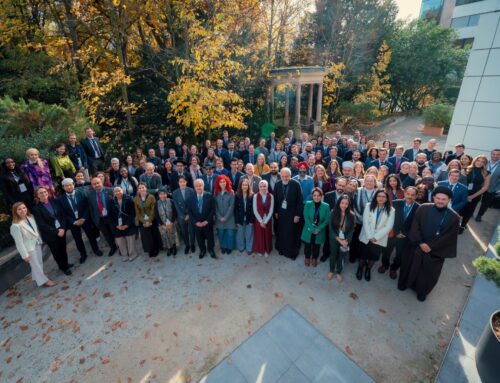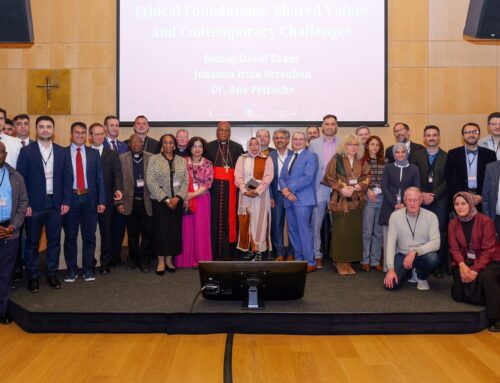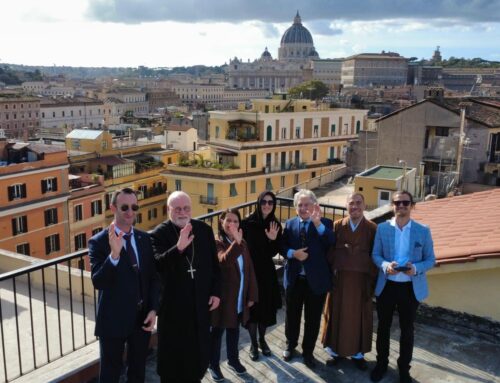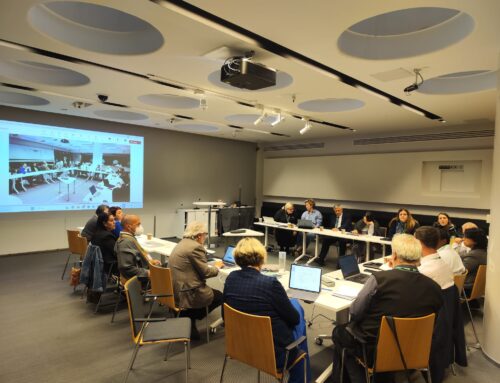President of Religions for Peace Europe Prof. Genti Kruja: Religion and Media Must Be Co-Authors of Truth and the Common Good
Cres, Croatia – October 13, 2025
The 4th Mediterranean Interreligious Forum opened on the island of Cres, organized by the Centre for Interreligious Dialogue in cooperation with the University of Rijeka and international partners. The forum, moderated by Dr. Vedran Obućina, President of the Centre for Interreligious Dialogue, focuses this year on “Religion and Media” and “Religion and the Sea.”
The keynote speech was delivered virtually by Prof. Genti Kruja, President of Religions for Peace Europe, and welcomed by Cres Mayor Mr. Marin Gregorović.
In his address, Prof. Kruja emphasized that religion and media are “co-authors of the moral story of our time,” and must work together in service of truth, justice, and human dignity. He pointed out that the relationship between religion and media often faces mistrust, misunderstanding, or stereotypes, yet it can be rebuilt into a partnership founded on respect, ethical responsibility, and the pursuit of truth.
Prof. Kruja also highlighted the challenges of the digital age, where polarization and misinformation increasingly undermine social understanding. He stressed that faith communities should promote media literacy, while technology-if used with wisdom and moral intent-can serve as a tool for peace and coexistence rather than division.
A significant part of his speech was devoted to the spiritual and moral relationship between religion and the sea, reflecting on the symbolism of water in sacred traditions and the moral duty to protect the environment and oceans.
“Caring for the sea and for nature honors the Creator; destroying them dishonors the gift of life itself,” said Prof. Kruja, recalling that the Mediterranean – “the very body of water that has nourished civilizations” – has today become a site of ecological crisis and human tragedy.
Turning to the Mediterranean and Balkan regions, he underlined their shared religious and cultural heritage as a foundation for coexistence and dialogue.
“In the Balkans, the sound of church bells and the call to prayer from mosque minarets have long echoed through the same neighbourhoods. This memory should not remain mere nostalgia; it must inspire us to write a new chapter of cooperation among Christians, Muslims, and others,” he stated.
In conclusion, Prof. Kruja affirmed that peace education and interfaith cooperation are the cornerstones of contemporary diplomacy for justice, understanding, and inclusion.
“In a world overwhelmed by information, let us strive to be voices of wisdom; in a world divided by ideology, let us work as bridge builders.”
The 4th Mediterranean Interreligious Forum continues through October 16, featuring panel discussions on religious ethics, media responsibility, maritime ecology, and interfaith collaboration for sustainable development.

